Most people love Science Fiction, but not everyone has the time or even head space to digest the regularly huge Sci-Fi novel. That’s fine, and luckily far from the only way to consume mind-expanding Sci-Fi!
On top of great video games that’ll let you live and breathe Sci-Fi, you can also get your fix via short stories that can be read in a heartbeat and will develop inside your mind into something greater than you could have ever imagined.
I have no mouth and I must scream (Harlan Ellison, 1967)
This short story tells us about the last known survivors of an Apocalypse, but there’s a massive twist. Instead of constantly struggling to survive, they are desperate to die. The world-ending event wasn’t the result of an accident. The cause was an attack by an evil AI that wiped out most of humanity and now keeps the survivors in a perpetual state of immortality just so it can abuse them physically and psychologically.
This story is scarier even now than when it was first released because we’re witnessing the dawn of the age of bad AI, a time when the most powerful people in the world are investing all of their resources in the creation of machines that will – best case scenario – make everything worse and oh so much dumber for everyone on the planet. I have no mouth and I must scream is especially harrowing because it shows humankind could end up misguided to the point of turning the worst dreams we have about Hell into something real.

The time machine (H.G. Wells, 1895)
If you’re a fan of Back To The Future or the thousands of other Sci-Fi stories about time travel, then you have this short story to thank for. H.G Wells’ classic story tells us about a man who creates a machine that allows him to gain access to the 4th dimension and thus to travel through time.
The most surprising aspect of this story, for anyone who’s grown up with more recent time travel stories, is that the scientist doesn’t use it to go back in time to fix a wrong. Instead, he uses it to visit the future, and ends up discovering both beautiful and nightmarish things. Though it was written in 1895, The Time Machine remains a mysterious, interesting, and thrilling tale, especially if you’d like to know more about the genesis of time travel Sci-Fi.
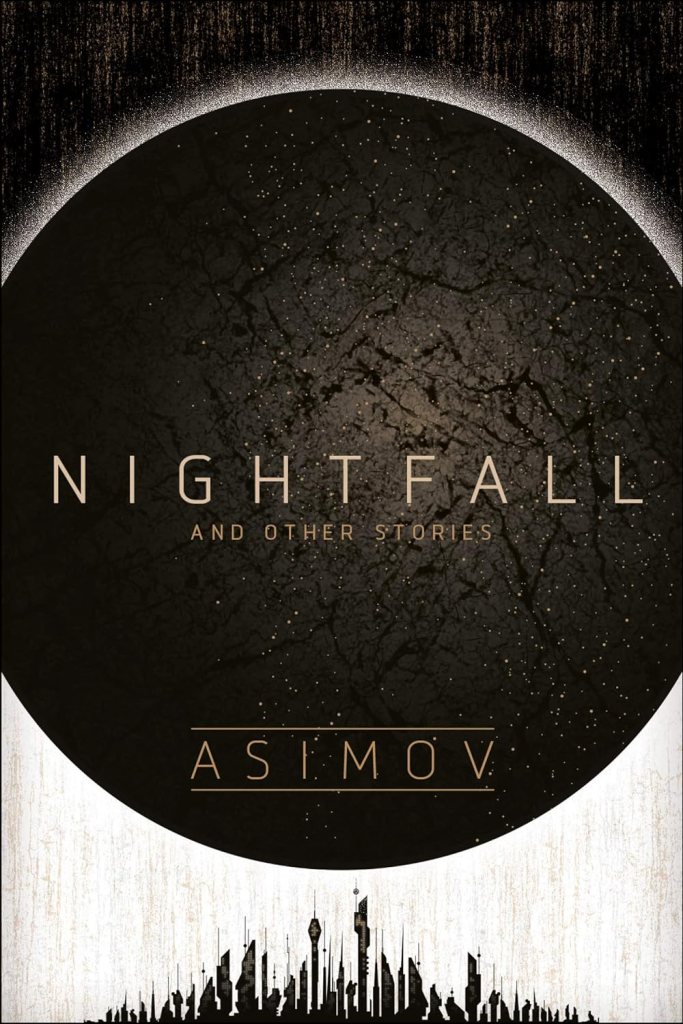
Nightfall (Isaac Asimov 1941)
The grandfather of modern Science Fiction naturally also knew how to make the genre interesting regardless of word count. Nightfall tells the story of Lagash, a planet where night doesn’t exist because every part of it is constantly illuminated by one of its six suns.
Unfortunately for its inhabitants, however, night will exist, to some extent, as an eclipse is about to take place. The story beautifully delves into what could happen to a civilization if it were to come across one of the simplest but strongest sources of primal fear for the first time. It’s scary, not because of the event itself, but because of our response, and that’s probably why it remains one of the most highly-regarded Sci-Fi short ever written.

A Sound of Thunder (Ray Bradbury, 1952)
Ever heard the term “Butterfly Effect” anywhere? This is where that came from. A Sound Of Thunder created that concept by telling the story of time travellers who go millions of years into the past and, by accidentally changing the smallest of things in there, end up noticing that they’ve completely changed their world when they get back to their time.
This is one of the most influential and still most interesting tales in all of Sci-Fi, and a great back to back read to A Time Machine. Interestingly, both short stories got terrible Hollywood adaptations, so please steer away from those and read the originals instead.
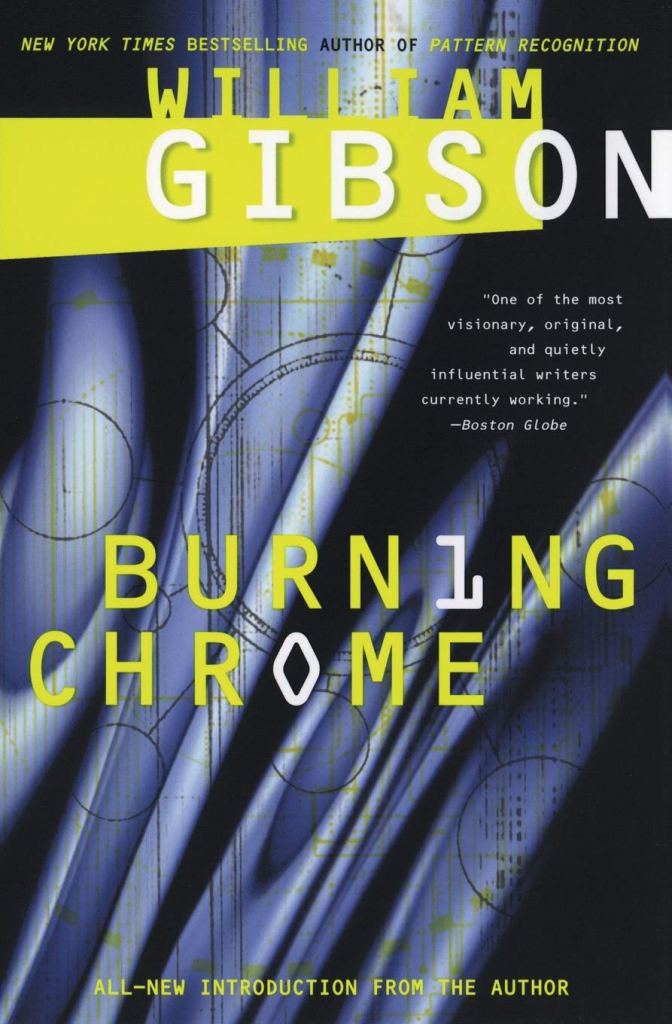
Burning Chrome (William Gibson, 1982)
William Gibson is famous for kickstarting the Cyberpunk genre with Neuromancer, but Burning Chrome is an even earlier incursion into the genre. The first tale set in the Sprawl tells the story of two hackers who get into ever-deeper shenanigans not because they’re evil or because they want to change the world for the better by ruining evil mega corps, but just so they can impress a girl.
This remains an interesting read, and is definitely something you should give a go if you’re considering getting deeper into Gibson’s Cyberpunk body of work.
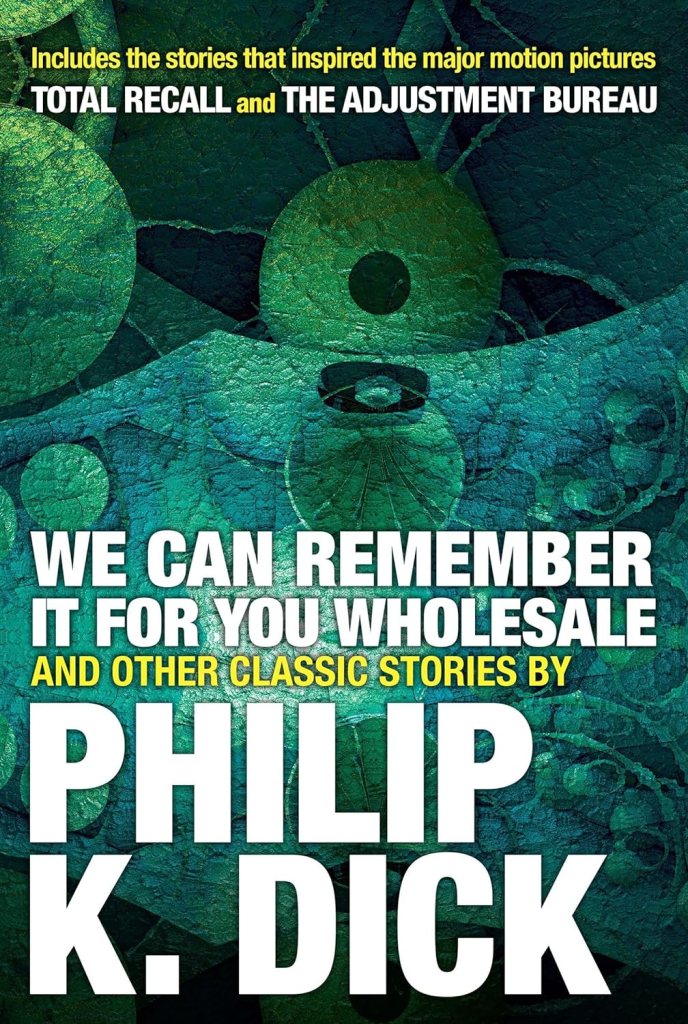
We Can Remember It For You Wholesale (Phillip K. Dick, 1966)
Would you like to live in a world where you could buy memories? This story tells you about a not-too-distant future where you can acquire memories of your wildest dreams so that you can live them as your own, but it naturally comes with at least one very serious setback. At which point to you lose the ability to distinguish fake memories from the real thing, and when will the mega corporation responsible for the memory trade begin using their tech for sinister ends?
No, your memories aren’t deceiving you. We Can Remember It For You Wholesale is the story that inspired the classic Arnold Schwarzenegger film Total Recall, but it’s still definitely worth a read because it gets way, way crazier than any of its film adaptations.
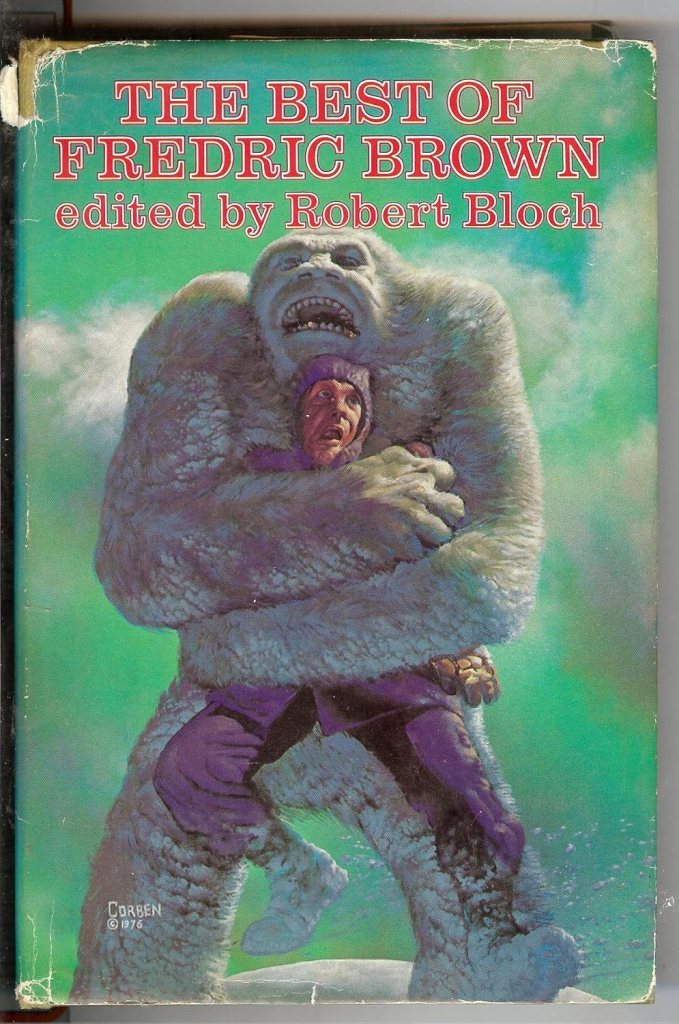
Arena (Fredrick Brown, 1944)
Arena tells the story of intergalactic war made practical. Right before a mega space battle is about to take place, a highly advanced alien lifeform abducts one combatant from each side and places them inside an arena to have them fight to the death. The stakes are simple: whoever kills the opponent will immediately destroy the entirety of the opposing forces and will get to go back to tell the story. When put like this, Arena feels like the power fantasy of a Bond villain come to life, but the alien lifeform behind this Arena has a surprisingly interesting motive behind their actions.
Arena has been adapted into an episode of Star Trek of the same name, which also rocks, but this short story is even better.
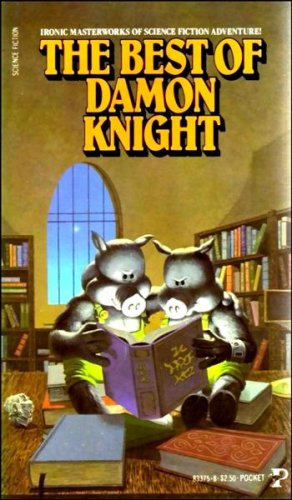
To Serve Man (Damon Knight, 1950)
This famous classic tells the story about alien contact with an alien race that seems very eager to help humankind. They supply the tech, the food, and everything we need to get healthy and strong. How nice. No way this could be some kind of trap, right? At first, To Serve Man seems to tell a tale antithetical to the common alien invasion story, but might it actually just be luring readers to one of the best and darkest outcomes in the history of literature? Read it and find out!
If you’re into The Simpsons or The Twilight Zone, you may go a little spoiled into To Serve Man, but this short story that inspired two of the best episodes in these amazing series is still more than worth it.

The Lottery (Shirley Jackson, 1948)
This story takes place in an idyllic place that stays that way seemingly because every year, its inhabitants repeat a ritual that they call “The Lottery”. The ritual supposedly purges the land of all evil and keeps things running smoothly, and it’s as simple as it is vile and twisted. The Lottery is one of the stories on this list to feature less obvious Sci-Fi elements, but its idea of a Utopian society that’s anything but has led many sci-fi authors and aficionados to herald it as one of the best in the genre.
The Lottery has influenced other literature, and various movies, and it remains an ever-interesting read as well as a poignant criticism of following tradition just for the sake of it.

Speech Sounds (Octavia Butler, 1983)
After a mysterious plague kills many and renders most of humankind unable to read write or speak, the few who keep the ability to speak live in constant danger of jealous violence by the people affected by the disease. Speech Sounds tells the story of a woman who hides her ability to communicate in the hopes of safely navigating a highly desolate time and place in history.
Speech Sounds is scary, and harrowing, but it also finds a way to fill readers with much-needed hope right after things get as dark as they can be.













Published: Jul 28, 2024 01:40 pm